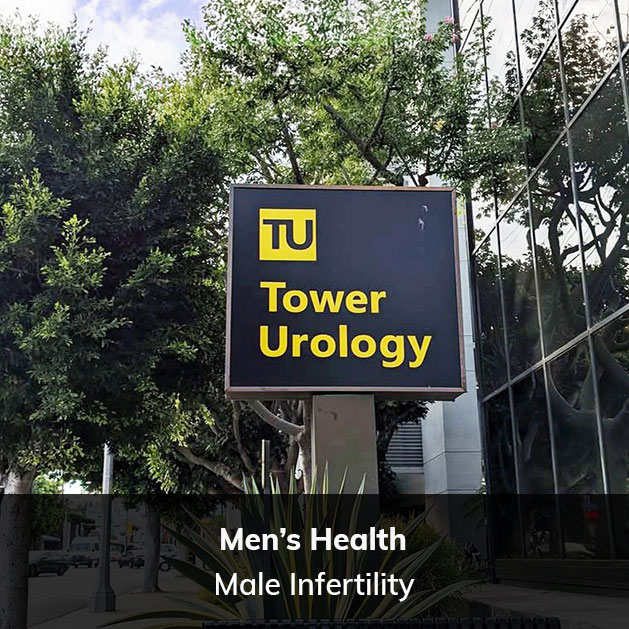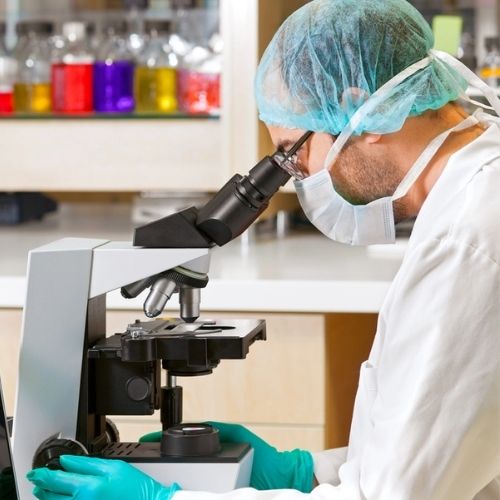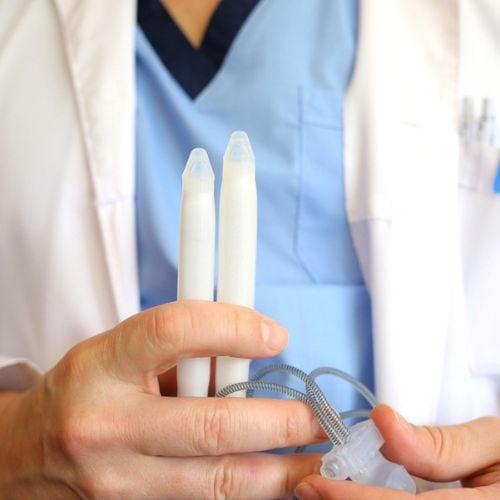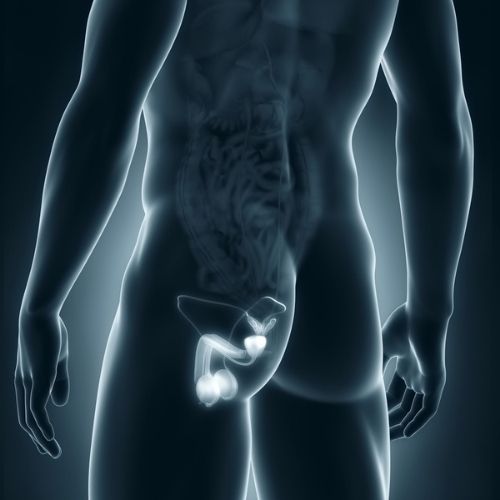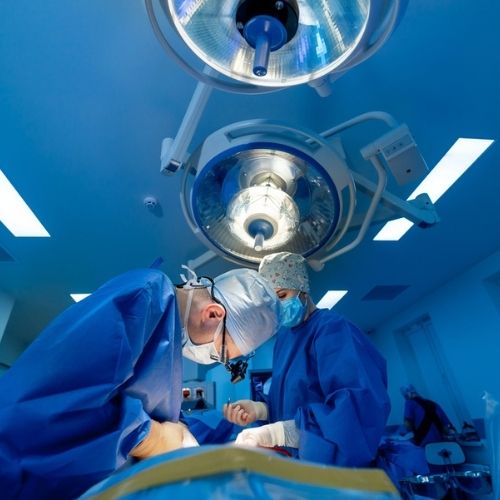What is male infertility?
Male factor infertility is a common issue that accounts for approximately 40% of all infertility cases. At Tower Urology, our experienced fertility specialists take a comprehensive approach to diagnosing and treating male infertility, using cutting-edge diagnostics and a wide range of personalized treatment options.
Whether you’re seeking a vasectomy reversal, have concerns about ejaculation, or are experiencing more complex reproductive tract issues, our team is here to help you achieve your family-related goals.

Who is affected by male infertility?
Male infertility can affect men of all ages, though it’s most commonly seen in men between 30 and 50 who are actively trying to conceive. It can be caused by one or a combination of reasons, ranging from lifestyle factors, medical conditions, or blockages in the vas deferens (the tube that transports sperm) or other parts of the reproductive system.
What causes male infertility?
Several physical, hormonal, and anatomical factors can influence problems with male fertility. Common causes of male infertility include:
- Low sperm count or poor sperm quality.
- Poor sperm motility (the ability of sperm to move effectively).
- Hormonal imbalances (such as low testosterone or abnormal hormone levels).
- Varicocele (an enlargement of the veins in the scrotum that can impair sperm production).
- Retrograde ejaculation (where semen enters the bladder instead of exiting through the urethra).
- Blockages in the vas deferens or elsewhere in the reproductive tract.
- Ejaculatory dysfunction (such as delayed or absent ejaculation).
- History of vasectomy.
- Infections or inflammation.
- Exposure to environmental toxins or heat.
- Genetic abnormalities (e.g., Klinefelter syndrome).
Lifestyle factors such as obesity, smoking, excessive alcohol use, and stress can also play a role and adversely affect male fertility.
What are the symptoms of male infertility?
Often, male infertility has no noticeable symptoms beyond difficulty conceiving.
However, depending on the cause, some men may experience one or more of the following symptoms:
- Changes in ejaculation (e.g., low volume or retrograde).
- Pain, swelling, or lumps in the testicles (common with varicocele).
- Reduced body and/or facial hair, indicating a possible hormonal imbalance.
While abnormal semen analysis findings may indicate a problem, such investigations are usually only carried out after a couple has had difficulty conceiving and decided to seek help. In this situation, specific symptoms may not have presented themselves beyond the inability to conceive.
How is male infertility diagnosed?
At Tower Urology, we employ a comprehensive evaluation process to identify the underlying causes of male factor infertility accurately. A male infertility test may include:
- Medical history and physical exam: To assess past illnesses, injuries, or surgeries, including prior vasectomy or trauma.
- Semen analysis: To evaluate sperm count, motility, and shape.
- Hormone testing: To measure key hormone levels like testosterone, follicle-stimulating hormone (FSH), Luteinizing hormone (LH), and prolactin.
- Scrotal ultrasound:To detect varicocele or structural abnormalities.
- Genetic testing: To look for Y-chromosome microdeletions or chromosomal abnormalities.
- Testicular biopsy: To determine whether sperm production is impaired in select cases.
- Imaging or additional testing: To look for blockages in the reproductive tract if such problems are suspected.
What fertility treatments are available?

Fertility treatment at Tower Urology is highly personalized and depends on the underlying cause of male factor infertility and your male fertility testing results.
For some men, lifestyle modifications such as improving diet, exercising regularly, quitting smoking, and avoiding environmental toxins can significantly improve sperm quality and reproductive potential.
When hormonal imbalances or infections are identified, targeted medications may be prescribed to optimize hormone levels or eliminate sources of inflammation.
Surgical options may be recommended in cases where physical abnormalities contribute to infertility.
- A varicocelectomy is a procedure that repairs dilated veins in the scrotum (varicoceles) and can enhance healthy sperm production and function.
- For men who have undergone a vasectomy, a vasectomy reversal can reconnect the vas deferens, allowing sperm to be present in the semen again.
- In cases where sperm retrieval is necessary, advanced techniques such as testicular sperm extraction (TESE) or micro-TESE are available in conjunction with a reproductive specialist, particularly for men with azoospermia (no sperm in the ejaculate). These procedures allow for the collection of viable sperm directly from the testicular tissue.
- For couples pursuing assisted reproductive technology (ART), options like intrauterine insemination (IUI) or in vitro fertilization (IVF) with intracytoplasmic sperm injection (ICSI) can offer promising pathways to conception. These methods are often used in combination with surgical or medical treatments to maximize the chances of success.
What makes Tower Urology different?
Unlike many clinics focusing solely on ARTs, Tower Urology emphasizes a whole-person approach. Our collaboration with male infertility specialists and in-house expertise in reproductive medicine allows us to address root causes and symptoms, offering the most advanced and individualized care available.
What is the recovery process like for male infertility treatment?
Recovery and downtime depend on the type of treatment:
- Lifestyle and medication-based treatments may take weeks to show improvement, but result in no downtime.
- Surgical procedures, such as varicocelectomy or vasectomy reversal, typically require one to two weeks of downtime, with results becoming clear over several months.
- Most ART procedures are minimally invasive, typically performed as outpatient procedures, and often require minimal to no significant recovery time.
Is male infertility ever misdiagnosed?
Yes, male factor infertility can sometimes be misdiagnosed as low libido, erectile dysfunction, or a hormonal issue unrelated to fertility. That’s why seeing a specialized provider who focuses on diagnosing and treating reproductive conditions is essential for an accurate diagnosis and effective treatment.
Why Turn to Tower Urology for Male Infertility Doctors in Los Angeles?
If you have been searching for a male infertility doctor in the Los Angeles area, consider Tower Urology. We take a personalized, evidence-based approach to urology care. All our professionals at Tower Urology are dedicated to providing you with expert care and follow-up. We take the time to understand you and personalize your treatment plan to your needs.
We invite you to establish a care plan with Tower Urology.
Tower Urology is a proud affiliate of Cedars-Sinai Medical Center, ranked #1 in California and #2 nationwide by U.S. News & World Report. This partnership reflects our dedication to delivering the highest standard of urologic care alongside the best urologists in Los Angeles. Our years of experience and access to Cedars-Sinai’s world-class facilities ensure that our exceptional and innovative urological care positions Tower Urology as a leader in Southern California.
Tower Urology is conveniently located for patients throughout Southern California and the Los Angeles area, including Beverly Hills, Santa Monica, West Los Angeles, West Hollywood, Culver City, Hollywood, Venice, Marina del Rey, Burbank, Glendale, and Downtown Los Angeles.
Our services include treatment for low testosterone, chronic pelvic pain, chronic testicular pain, and Peyronie’s disease.
Male Infertility FAQs
Yes, vasectomy reversal is a microsurgical procedure that can reconnect the vas deferens, restoring the ability to ejaculate sperm. Success depends on how much time has passed since the vasectomy and other fertility factors.
Retrograde ejaculation occurs when semen flows backward into the bladder instead of out of the penis during orgasm. This condition can often be managed with medications or sperm retrieval for use in ART.
Not necessarily. While abnormal hormone levels can impact fertility, they are often treatable with hormone therapy or other medications, improving the chances of conception.
If you’ve been trying to conceive for more than 12 months (or six months if the female partner is over 35), it’s time to consult a fertility specialist. Early diagnosis of underlying issues can improve outcomes.
Sources
10 reasons for male infertility
https://www.figo.org/news/10-reasons-male-infertility
Infertility in Men: Advances towards a Comprehensive and Integrative Strategy for Precision Theranostics
https://pmc.ncbi.nlm.nih.gov/articles/PMC9139678/
Male infertility: the role of imaging in diagnosis and management
https://pmc.ncbi.nlm.nih.gov/articles/PMC3746399/
Male Infertility
https://www.ncbi.nlm.nih.gov/books/NBK562258/
What treatment options are available for male infertility?
https://www.nichd.nih.gov/health/topics/menshealth/conditioninfo/treatments

